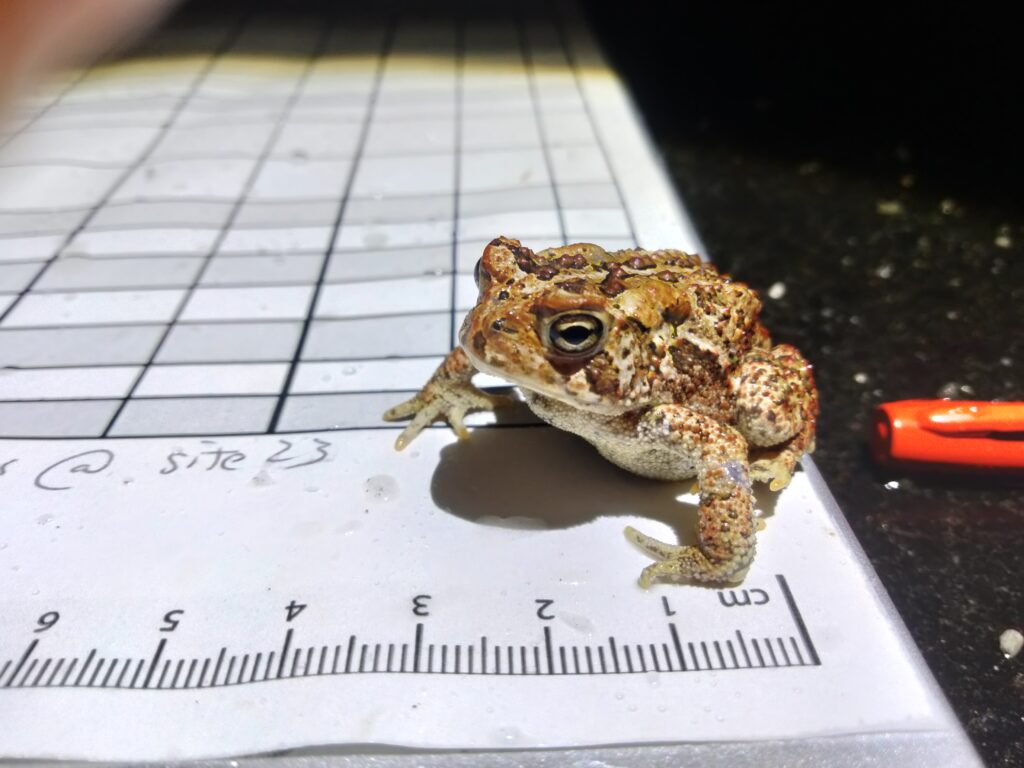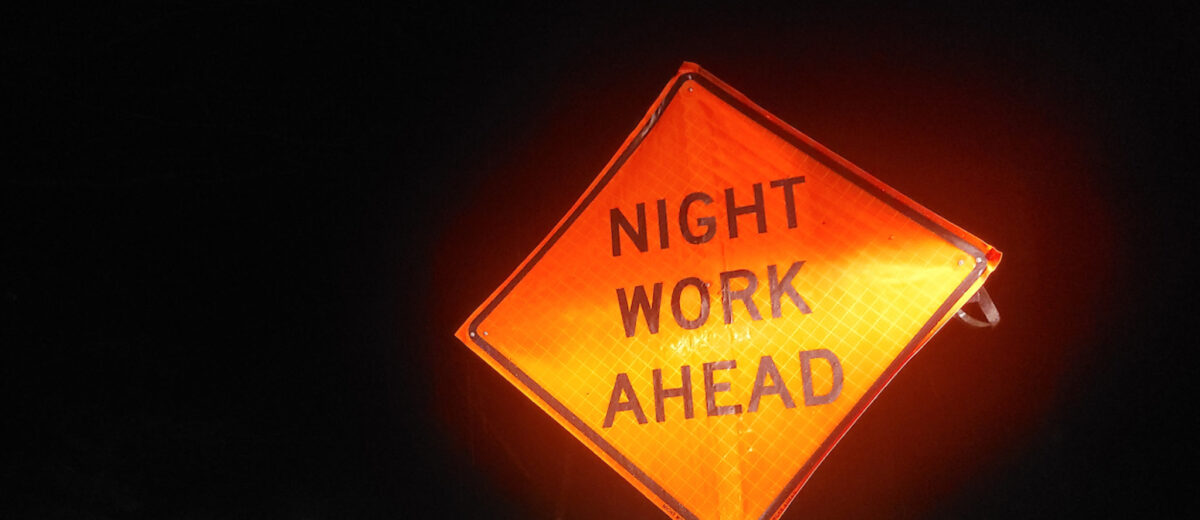Fall can be a rainy time in Acadia, prompting toads, frogs, and other amphibians to move about the landscape. Caught in the headlights as they leap across wet roads at night, toads can look like leaves tumbling in the wind.
Dozens of volunteers have gotten a closer look at these amphibian movements as part of a two-year long research project being led by Acadia Science Fellow and University of Maine graduate student Marisa Monroe and Dr. Noah Charney, assistant professor in wildlife ecology at the University of Maine.
“People may have heard about big nights in spring when amphibians migrate to breeding pools. But they are out and about throughout the late spring, summer, and fall,” said Monroe.
Some 13 species of amphibians live in Acadia National Park, where they are important members of wetland and forest food webs.
Why does a toad cross the road? All sorts of reasons. They may be traveling to or from wetland breeding habitat or seeking food or shelter. On cold nights, they may be trying to keep warm on pavement, which stays warmer longer.
“With more information about where and when frogs are crossing park roads, we may be able to predict their movements based on variables such as temperature, precipitation, proximity to a wetland, and tree cover,” said Monroe. Such predictions can help park staff protect amphibians, which are experiencing population declines across the globe.
For now, said Monroe, “the most important thing is to get as many eyes on the roads on as many nights as possible.” Those interested in experiencing Acadia National Park in a new way – at night, on a quiet stretch of road, often in the rain, looking for amphibians can attend the next training on Saturday, August 24 at Acadia National Park Headquarters (in Bar Harbor, ME) from 9:30am – 11:30am. Contact Monroe at marisa.monroe@maine.edu to sign up.
Another way to help is to post observations of amphibians on roads on iNaturalist, or to email Monroe photos and locations of large crossing events.
For those traveling around Acadia on rainy nights, be alert for “night work” signs and volunteers in reflective vests as they monitor – and hopefully help – toads cross the road.
Please handle amphibians only at times when their life is endangered by road traffic; otherwise excessive handling may cause stress and bodily damage.
The Acadia Science Fellowship is a partnership between Schoodic Institute and the National Park Service with support from the David Evans Shaw Family Foundation, the Sibley-Saltonstall Family Foundation, and individual donors.

